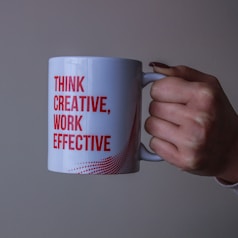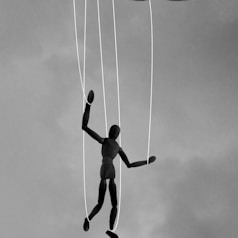Like many driven professionals, I used to think grinding away at work was the key to success. The harder I worked, the better my life would be down the road, right?
Wrong. This mindset that constant work and productivity should be the center of life is flawed. It wasn’t until I shifted my perspective to make life experiences the purpose that I found real balance.
Let me explain how this one tiny mindset shift changed my approach to work-life balance for the better.
Listen to this episode
My Toxic History of All Work, No Play
I’m no stranger to hustle culture. For years, I was a self-described workaholic, sacrificing sleep, relationships, and time off because I believed it would pay off someday.
In my mind, I just had to keep pushing and grinding now to “live life later” at some magical point in the future. But that time never came. It was like a carrot perpetually dangling in front of me while I ran myself ragged chasing it.
I bought into the mentality that work should be the center of life. Vacations and time with loved ones were seen as pesky interruptions – necessary evils so I wouldn’t fully burn out. But not things I valued in their own right.
Flipping the Script: Life Experiences as the Point
It wasn’t until recently that I realized how toxic this mindset was. I decided to completely flip the script on my approach to work-life balance.
Instead of seeing work and productivity as the point of life, I shifted to viewing life experiences as the point. Things like adventures, passions, and relationships – I decided to center these as my purpose for working hard.
Work is now simply the vehicle that makes pursuing these life experiences possible. The supplemental activity funding my true priorities.
This may seem like a small semantic shift, but it’s shocking difficult to do.
Easier Said Than Done
I realize this reframing is much easier said than done. We operate in a culture that glorifies being busy and grinding.
It takes constant vigilance and intention to not get sucked back into the mindset of chasing arbitrary productivity. Reminding yourself that work is simply a vehicle for living takes practice.
Our brains like patterns and defaults. Shifting perspectives requires rewiring thought habits and being purposeful each day.
It’s not an easy flip of the switch, which is why it’s so critical to put systems in place to reinforce the “life first” mindset.
With concerted effort over time, the shift can stick. But be patient with yourself throughout the process. Old thought patterns have a way of creeping back in.
Framing is Critical
“Isn’t this just semantics?” you may ask. “You still work hard and take vacations sometimes, right?”
Here’s the thing: how we frame things has a huge influence on our behaviors and choices. When I framed work and productivity as the center, I put myself on a hamster wheel of chasing arbitrary metrics and deliverables.
Life became something I was always sacrificing now to get to later. This created constant stress and anxiety anytime I wanted to enjoy the moment.
But when I reframed life as the purpose, everything changed. My focus shifted to relationships, adventures, passions, and growth. Work supports these goals rather than consuming them.
With this mindset shift, I give myself permission to fully live and engage with the world around me. I’m no longer plagued by feelings of falling behind or sacrificing experiences today.
This distinction has the power to change everything about how I approach each day and week. An afternoon hiking with friends carries just as much weight as preparing for an important meeting. Time with family is valued just as much as time grinding away on work tasks.
If successful, the tangible impacts will be huge. I’m talking less stress, more fulfillment, and better connections to the people and passions that bring joy.
5 Ways I Embraced the “Life First” Mindset
For anyone else hoping to make this shift, there are some tiny ways you can get started (do as much as possible for your situation):
1. Schedule vacations and life experiences first, then plan work responsibilities around them.
2. Have intentional conversations about non-work topics with colleagues to connect as whole people.
3. Set life goals for relationships, passions, and adventures – not just professional goals.
4. Advocate (and vote) for workplace policies that better support rich lives outside of work.
One Small Mindset Shift, One Giant Impact
In the end, this small shift is going to completely change my approach to work-life balance and bring me vastly more fulfillment.
From chasing arbitrary metrics and grinding away out of obligation to engaging deeply in the life experiences that bring me joy. Moving work from the center to the sidelines, where it belongs.
The takeaway here is not to discount the power of framing and perspective. How you view your priorities has a massive influence on daily choices. Keep your eyes on the rich life you want to live and let your work support that vision.







